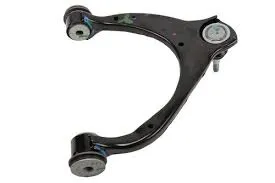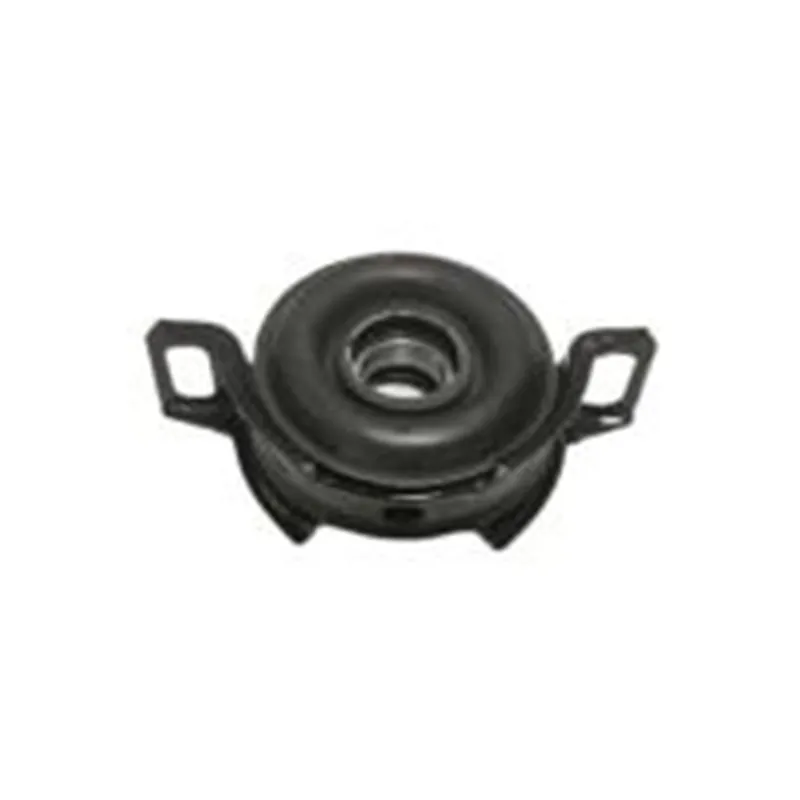
-
 Afrikaans
Afrikaans -
 Albanian
Albanian -
 Amharic
Amharic -
 Arabic
Arabic -
 Armenian
Armenian -
 Azerbaijani
Azerbaijani -
 Basque
Basque -
 Belarusian
Belarusian -
 Bengali
Bengali -
 Bosnian
Bosnian -
 Bulgarian
Bulgarian -
 Catalan
Catalan -
 Cebuano
Cebuano -
 Corsican
Corsican -
 Croatian
Croatian -
 Czech
Czech -
 Danish
Danish -
 Dutch
Dutch -
 English
English -
 Esperanto
Esperanto -
 Estonian
Estonian -
 Finnish
Finnish -
 French
French -
 Frisian
Frisian -
 Galician
Galician -
 Georgian
Georgian -
 German
German -
 Greek
Greek -
 Gujarati
Gujarati -
 Haitian Creole
Haitian Creole -
 hausa
hausa -
 hawaiian
hawaiian -
 Hebrew
Hebrew -
 Hindi
Hindi -
 Miao
Miao -
 Hungarian
Hungarian -
 Icelandic
Icelandic -
 igbo
igbo -
 Indonesian
Indonesian -
 irish
irish -
 Italian
Italian -
 Japanese
Japanese -
 Javanese
Javanese -
 Kannada
Kannada -
 kazakh
kazakh -
 Khmer
Khmer -
 Rwandese
Rwandese -
 Korean
Korean -
 Kurdish
Kurdish -
 Kyrgyz
Kyrgyz -
 Lao
Lao -
 Latin
Latin -
 Latvian
Latvian -
 Lithuanian
Lithuanian -
 Luxembourgish
Luxembourgish -
 Macedonian
Macedonian -
 Malgashi
Malgashi -
 Malay
Malay -
 Malayalam
Malayalam -
 Maltese
Maltese -
 Maori
Maori -
 Marathi
Marathi -
 Mongolian
Mongolian -
 Myanmar
Myanmar -
 Nepali
Nepali -
 Norwegian
Norwegian -
 Norwegian
Norwegian -
 Occitan
Occitan -
 Pashto
Pashto -
 Persian
Persian -
 Polish
Polish -
 Portuguese
Portuguese -
 Punjabi
Punjabi -
 Romanian
Romanian -
 Russian
Russian -
 Samoan
Samoan -
 Scottish Gaelic
Scottish Gaelic -
 Serbian
Serbian -
 Sesotho
Sesotho -
 Shona
Shona -
 Sindhi
Sindhi -
 Sinhala
Sinhala -
 Slovak
Slovak -
 Slovenian
Slovenian -
 Somali
Somali -
 Spanish
Spanish -
 Sundanese
Sundanese -
 Swahili
Swahili -
 Swedish
Swedish -
 Tagalog
Tagalog -
 Tajik
Tajik -
 Tamil
Tamil -
 Tatar
Tatar -
 Telugu
Telugu -
 Thai
Thai -
 Turkish
Turkish -
 Turkmen
Turkmen -
 Ukrainian
Ukrainian -
 Urdu
Urdu -
 Uighur
Uighur -
 Uzbek
Uzbek -
 Vietnamese
Vietnamese -
 Welsh
Welsh -
 Bantu
Bantu -
 Yiddish
Yiddish -
 Yoruba
Yoruba -
 Zulu
Zulu
មករា . 14, 2025 13:39
Back to list
tubular control arms
Control arms present a significant aspect of vehicular systems, bridging the essential function of a vehicle's suspension. The intricate design and critical functionality make them a pivotal component within the automotive industry. In understanding their cost, one must delve into various dimensions, combining experience, expertise, authority, and trust - factors vital for an informed perspective.
The authoritativeness of control arms also translates into compatibility and performance. Manufacturers often design control arms specific to vehicle types and makes, explaining the variance in cost among different vehicle models. Authentic manufacturer-provided control arms, endorsed by vehicle makers, assure users of optimum compatibility, minimizing risks associated with generic alternatives. Spending more on vehicle-specific control arms underscores an authoritative choice, aligning with the vehicle’s design build to ensure longevity. Trustworthiness is an invaluable measure when considering control arms cost. It’s imperative that buyers engage with reputable suppliers, guaranteeing the authenticity of parts. The market is rife with counterfeit products, and they often come at a tempting low price. However, these severely lack in rigorous testing standards, which legitimate products undergo, compromising safety and performance. Customer testimonials and reviews remain a trusted recourse, providing insights into the reliability and performance of specific control arm types. In conclusion, while the cost of control arms might appear straightforward, it's intricately linked to multiple facets that together ensure an efficient and robust suspension system. Adopting a well-rounded approach that considers experience, expertise, authoritativeness, and trustworthiness can significantly aid vehicle owners in making informed, cost-efficient decisions without compromising safety and performance. Thus, investing in quality control arms transcends beyond mere price—it optimally supports longevity, reliability, and security on every drive.


The authoritativeness of control arms also translates into compatibility and performance. Manufacturers often design control arms specific to vehicle types and makes, explaining the variance in cost among different vehicle models. Authentic manufacturer-provided control arms, endorsed by vehicle makers, assure users of optimum compatibility, minimizing risks associated with generic alternatives. Spending more on vehicle-specific control arms underscores an authoritative choice, aligning with the vehicle’s design build to ensure longevity. Trustworthiness is an invaluable measure when considering control arms cost. It’s imperative that buyers engage with reputable suppliers, guaranteeing the authenticity of parts. The market is rife with counterfeit products, and they often come at a tempting low price. However, these severely lack in rigorous testing standards, which legitimate products undergo, compromising safety and performance. Customer testimonials and reviews remain a trusted recourse, providing insights into the reliability and performance of specific control arm types. In conclusion, while the cost of control arms might appear straightforward, it's intricately linked to multiple facets that together ensure an efficient and robust suspension system. Adopting a well-rounded approach that considers experience, expertise, authoritativeness, and trustworthiness can significantly aid vehicle owners in making informed, cost-efficient decisions without compromising safety and performance. Thus, investing in quality control arms transcends beyond mere price—it optimally supports longevity, reliability, and security on every drive.
Next:
Latest news
Understanding the Broken Control Arm: Key Insights for Car Owners
NewsJun.20,2025
The Essential Guide to Control Arms for Cars
NewsJun.20,2025
Discover Quality Control Arms for Your Vehicle
NewsJun.20,2025
Control Arm: Enhance Your Vehicle's Performance with Quality Parts
NewsJun.20,2025
Billet Control Arms: Elevating Your Suspension System
NewsJun.20,2025
Bent Control Arm: Understanding the Importance and Cost Implications
NewsJun.20,2025
-

 English
English
 Afrikaans
Afrikaans
 Albanian
Albanian
 Amharic
Amharic
 Arabic
Arabic
 Armenian
Armenian
 Azerbaijani
Azerbaijani
 Basque
Basque
 Belarusian
Belarusian
 Bengali
Bengali
 Bosnian
Bosnian
 Bulgarian
Bulgarian
 Catalan
Catalan
 Cebuano
Cebuano
 Corsican
Corsican
 Croatian
Croatian
 Czech
Czech
 Danish
Danish
 Dutch
Dutch
 Esperanto
Esperanto
 Estonian
Estonian
 Finnish
Finnish
 French
French
 Frisian
Frisian
 Galician
Galician
 Georgian
Georgian
 German
German
 Greek
Greek
 Gujarati
Gujarati
 Haitian Creole
Haitian Creole
 Hausa
Hausa
 Hawaiian
Hawaiian
 Hebrew
Hebrew
 Hindi
Hindi
 Miao
Miao
 Hungarian
Hungarian
 Icelandic
Icelandic
 Igbo
Igbo
 Indonesian
Indonesian
 Irish
Irish
 Italian
Italian
 Japanese
Japanese
 Javanese
Javanese
 Kannada
Kannada
 Kazakh
Kazakh
 Rwandese
Rwandese
 Korean
Korean
 Kurdish
Kurdish
 Kyrgyz
Kyrgyz
 Lao
Lao
 Latin
Latin
 Latvian
Latvian
 Lithuanian
Lithuanian
 Luxembourgish
Luxembourgish
 Macedonian
Macedonian
 Malgashi
Malgashi
 Malay
Malay
 Malayalam
Malayalam
 Maltese
Maltese
 Maori
Maori
 Marathi
Marathi
 Mongolian
Mongolian
 Myanmar
Myanmar
 Nepali
Nepali
 Norwegian
Norwegian
 Norwegian
Norwegian
 Occitan
Occitan
 Pashto
Pashto
 Persian
Persian
 Polish
Polish
 Portuguese
Portuguese
 Punjabi
Punjabi
 Romanian
Romanian
 Russian
Russian
 Samoan
Samoan
 Scottish Gaelic
Scottish Gaelic
 Serbian
Serbian
 Sesotho
Sesotho
 Shona
Shona
 Sindhi
Sindhi
 Sinhala
Sinhala
 Slovak
Slovak
 Slovenian
Slovenian
 Somali
Somali
 Spanish
Spanish
 Sundanese
Sundanese
 Swahili
Swahili
 Swedish
Swedish
 Tagalog
Tagalog
 Tajik
Tajik
 Tamil
Tamil
 Tatar
Tatar
 Telugu
Telugu
 Thai
Thai
 Turkish
Turkish
 Turkmen
Turkmen
 Ukrainian
Ukrainian
 Urdu
Urdu
 Uighur
Uighur
 Uzbek
Uzbek
 Vietnamese
Vietnamese
 Welsh
Welsh
 Bantu
Bantu
 Yiddish
Yiddish
 Yoruba
Yoruba
 Zulu
Zulu
 Khmer
Khmer






